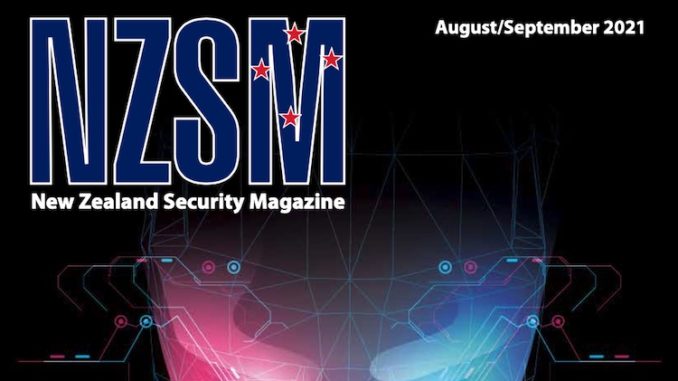
Welcome to the August-September 2021 issue of New Zealand Security Magazine!
It’s been an interesting 12 months in security.
Ensure you click on the Fullscreen button at the bottom-right of the viewer below. If you’re having difficulty seeing the viewer on your device, click here to view on the Issuu platform:
Last August, in the thick of the 2020 election campaign, Prime Minister Jacinda Ardern announced that the Government would stop using private security contractors at managed isolation and quarantine (MIQ) facilities. They would be replaced, she said, by security officers employed directly by the Ministry of Business Innovation and Employment (MBIE).
In the meantime, 500 additional NZDF personnel were marched into the MIQ hotels to ‘reduce reliance’ on private security guards and bolster public confidence in the security of the New Zealand’s COVID border.
12 months later, the security of New Zealand’s 32 MIQ facilities has been demonstrably effective. The private security industry has delivered a large-scale MIQ electronic security enhancement rollout, and in the absence of a quorum of government-employed security officers, the industry has continued to provide hundreds of guards to MIQ sites on any given day.
Managed isolation aside, New Zealand’s security industry excelled as an ‘essential service’ during periods of lockdown, and our security officers have played a key frontline role in protecting vulnerable businesses and critical infrastructure, and in managing physical distancing arrangements at supermarkets and retail spaces across the country.
Following last year’s release of the government’s Protecting Our Crowded Places from Attack: New Zealand’s Strategy, NZ Police has also turned to the security industry to support the provision of security advice to owners and operators of venues. A Crowded Places Security Advisory Group led and comprised of representatives from our industry is now driving this.
In 2020-21, the government and the economy have depended upon Aotearoa’s private security sector to deliver in ways that it has never done before. And the private security sector has delivered in spades.
Against this background, International Security Officers’ Day (ISOD) 2021 on 24 July was given even greater significance this year. We have every reason to look back over the past 12 months and feel immense pride in relation to the thousands of women and men who have donned their uniforms or picked up their tools in order to make our communities safer.
It’s only been around for the last five years, and ISOD is slowly gaining a degree of momentum. However, if anything the last year tells us that it is a day that should be receiving far wider recognition that it does.
Nicholas Dynon
Auckland


